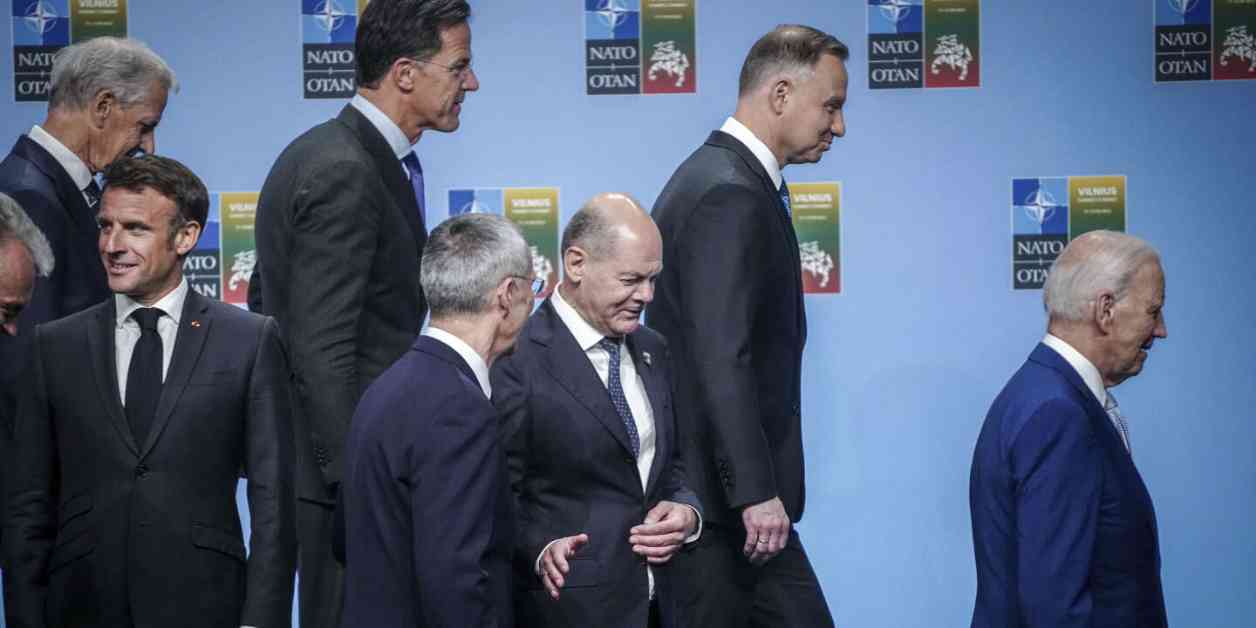The European countries are facing vulnerability and division within NATO as they struggle to navigate their relationships with the United States. Emmanuel Macron and Olaf Scholz, who both faced challenges in the recent European elections, are dealing with disagreements with the Americans regarding Russia. The potential return of Donald Trump to the White House further complicates the situation for EU countries as they approach the upcoming NATO summit.
The absence of Emmanuel Macron from the NATO summit in Washington, following the political crisis in France, highlights the weakened position of France and other European countries within the Atlantic Alliance. Macron, who previously expressed confidence in NATO but now faces challenges, is set to arrive a day late for the summit. Similarly, German Chancellor Olaf Scholz is also facing political difficulties after his party’s setback in the European elections.
One of the key points of contention between European leaders is the issue of Ukraine’s path to NATO membership. While Germany aligns with the United States in opposing Ukraine’s immediate accession to NATO to avoid escalating tensions with Russia, France and other Central European countries advocate for a more proactive approach to Ukraine’s integration into the alliance. This divergence of opinions reflects the complex dynamics within NATO as members navigate geopolitical challenges.
The cautious approach taken by the Biden administration in handling the Ukraine-Russia conflict has sparked frustration among some European countries, particularly Ukraine. The reluctance to escalate tensions with Russia has raised concerns about the effectiveness of NATO’s response to the crisis. The differing perspectives on how to address the conflict highlight the internal divisions within NATO and the challenges of maintaining unity in the face of external threats.
As discussions continue at the NATO summit, the need for a cohesive strategy to address the Ukraine crisis becomes increasingly urgent. The outcome of these deliberations will not only impact the security landscape in Europe but also shape the future of transatlantic relations. It is essential for European leaders to find common ground and present a unified front in addressing the complex challenges facing the alliance.
In conclusion, the vulnerability and division within NATO, compounded by the strained relations with the United States, underscore the need for European countries to reassess their approach to collective security. The upcoming summit presents an opportunity for leaders to address these challenges and reaffirm their commitment to a strong and united transatlantic alliance. By finding common ground and working together towards shared goals, NATO members can navigate the evolving security landscape and uphold stability in the region.

